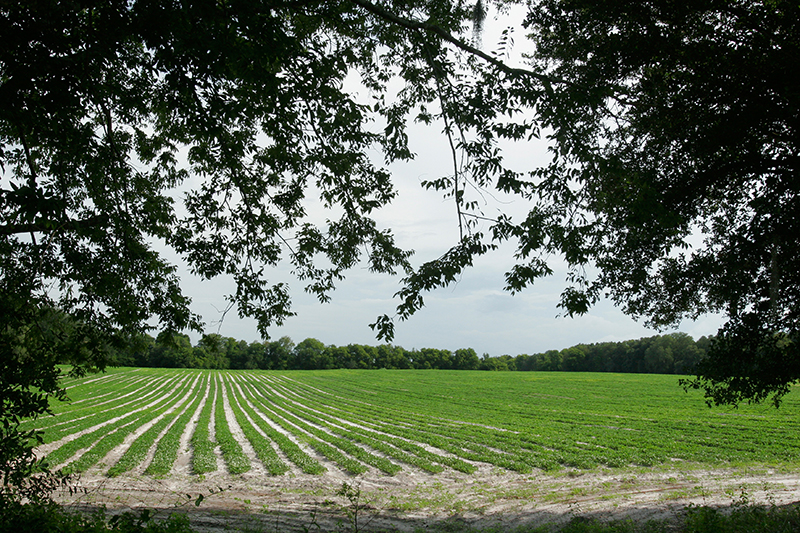Welcome to this week’s issue of our 2024 season UF/IFAS Extension Suwannee Valley Watermelon Crop Update. These updates will be summarized by Bob Hochmuth, Regional Specialized Extension Agent- Vegetable Crops, with input from Suwannee Valley Extension Agents: Mark Warren (Levy), Tyler Pittman (Gilchrist), Tatiana Sanchez (Alachua), Luke Harlow (Bradford), Dan Fenneman (Madison), Keith Wynn (Hamilton), Emily Beach (Lafayette), Jim Devalerio (Union), De’Anthony Price (Jefferson), Raymond Balaguer(Suwannee), Kevin Athearn (RSA-Agri- business), Shivendra Kumar (RSA-Agronomic Crops), Jay Capasso (RSA- Water Resources), and Bob H. covering vacant Columbia County position.
–
2024 Spring Twilight Watermelon Field Day – Thursday, April 18th – 5:00 PM to 8:00 PM EDT
Come and join your UF/IFAS Extension team and industry sponsors WestRock (paper mulch manufacturing company), Tri-Hishtil (grafted watermelon plant supplier), Toro (irrigation automation) and Harrell’s (controlled release fertilizer) to view on-farm demonstrations at one of Adam Whitehurst’s Farms ( Brown Acres Dr, Archer, FL 32618 (29°30’26.8″N 82°29’44.6″W) just south of Archer, FL on April 18th, from 5:00 PM to 8:00 PM. You will get the chance to see all these technologies in one place an evaluate their performance, benefits, and applications. Educational updates will be followed by an industry sponsored meal. Approved Continued Education Units (CEUs) available are FDACS: 1-Private Applicator, 1-Agricultural Row Crops; CCA: 0.5-Nutrient management, 0.5-Integrated Pest Management, 1-Crop Management. (Tatiana Sanchez)
Notes regarding row middle cultivation
This year there have been several calls to Extension Agents in the region regarding plant growth concerns. In some cases, there are disease issues and fertilizer concerns, but while this is fresh in my mind, I want to take note for next year some concerns we are seeing on several farms with too much soil being plowed or cultivated up onto the bed tops. Now, I realized the cleaning of row middles is not a precise nor easy task, however, I feel like we can do a more precise job and not create other potentially serious problems when too much soil gets piled up on the beds. The issues include: reducing the warming of the black mulched beds resulting in much slower growth, adding weed seed and other contaminates to the plant holes, making it harder to remove the plastic mulch at the end of the season, and if herbicides have been sprayed in the row middles before cultivating, we can bring up herbicides from the row middle soil and wash concentrated amounts into the plant holes injuring the crop.
–
Fusarium wilt update
As noted last week, we have been seeing high levels of Fusarium wilt throughout the Suwannee Valley. We have at least 500 acres or more of grafted watermelon plants on several farms and we are keeping a close eye on those fields. Overall, the grafted plants seem to be doing a great job of controlling Fusarium early in the season. I honestly feel like this is our best strategy in fields where we know there is Fusarium pressure. Yes, it is an expensive program, but in many of our fields with Fusarium this year, I am sure grafted plants would have been a good choice. We are very interested in seeing how the grafted plants perform for the rest of the season.
I have one other note regarding chemical treatments, such as Proline and Miravis Prime, as mentioned last week for Fusarium wilt. Those treatments are recommended for early season preventative treatments and not curative treatments, once Fusarium is in full swing. We do not have University research indicating effectiveness once Fusarium is established mid-season. I wish we did, but the research is just not there on a good curative program.
–
Reminder- Petiole-sap testing service offered
UF/IFAS County Extension agents will again be offering the weekly petiole-sap testing service for growers in their counties. Last year our Extension Agent team provided this service on 5,640 acres of watermelons in the Suwannee Valley, and the petiole sap testing efforts resulted in better refinement of fertigation programs with both increases and decreases, but a seasonal reduction of approximately 69,090 total lbs of both N and K2O. All Extension agents in the Suwannee Valley have the equipment and expertise to conduct this service. We offer testing for nitrogen and potassium, which helps growers fine tune the fertigation events for frequency and amounts to be fertigated. We are ready to conduct petiole-sap testing when the vines are at least 12-15 inches long or more. Contact your County Extension agent to start this service. (Bob Hochmuth)
–
If you know someone who wants to be added to this weekly notice, contact your Extension Agent or Mark Warren (352-949-8288) if you want to be added to the regional watermelon group text app.
We have initiated a more formal way to support our watermelon growers with a rapid diagnostics system through Suwannee Valley Regional and County Extension Agents. This industry-funded program allows Extension Agents to submit and pay for watermelon grower’s plant disease and other diagnostic samples. This SV Rapid Diagnostic Watermelon Program will help us to get quicker diagnostic results, helping to give early alerts to everyone, and not have to charge the growers directly. Plant disease samples are typically $40 and leaf tissue analyses are typically $20. We are currently extending our solicitation of those industry reps interested in sponsoring this effort. The past year’s sponsorships have ranged from $200 to $2,000 per company. Sponsors will be recognized every week beginning this week. Those interested in being added as a sponsor can contact Bob Hochmuth at bobhoch@ufl.edu or 386-288-6301.
Current 2024 sponsors of our Watermelon Rapid Diagnostics Program include Valdosta Plant Company, Mayo Ag Services, Gowan USA, Harrell’s Fertilizer, Triest Ag, Syngenta Crop Protection, and WestRock Paper Company. Others are still welcome to join.
- 2024 Watermelon Season Wrap Up - June 21, 2024
- Weekly Watermelon Update – June 3 - June 7, 2024
- Weekly Watermelon Update #10 – May 20 - May 24, 2024


